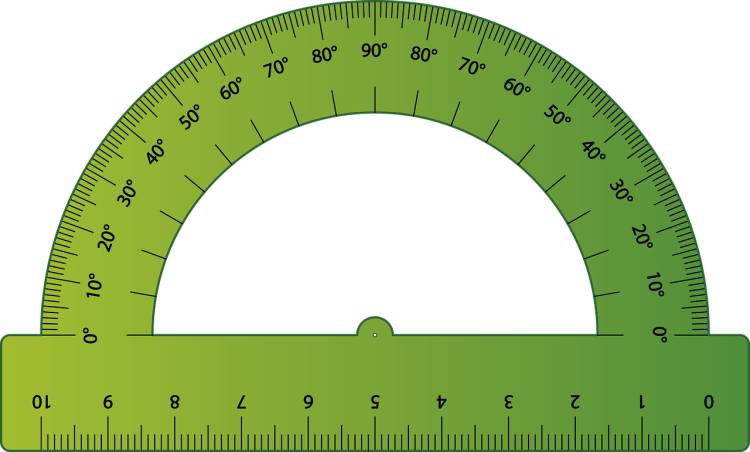How We See Us
Imagine that a hundred people are prescribed a drug. Consider what happens next. One- third of them won’t fill the prescription. Half of the remaining sixty-seven will fill it but won’t take the medication correctly. They’ll miss doses. They’ll quit taking it early. They might not even take it at all.
Physicians and pharmacists tend to blame such patients for their noncompliance, inaction and error. You can lead a horse to water, they reason. Psychologists tend to take a dim view of such judgments. They are trained to assume that the failure of patients to follow professional advice is the fault of the practitioner, not the patient.
Here’s something worse. Imagine that someone receives an organ transplant. Imagine it’s a kidney. A transplant typically occurs only after a long period of anxious waiting on the part of the recipient. Only a minority of people donate organs when they die (and even fewer when they are still alive). Only a small number of donated organs are a good match for any hopeful recipient. This means that the typical kidney transplant recipient has been undergoing dialysis, the only alternative, for years.
Dialysis involves passing all the patient’s blood out of his or her body, through a machine, and back in. It is an unlikely and miraculous treatment, so that’s all good, but it’s not pleasant. It must happen five to seven times a week, for eight hours a time. It should happen every time the patient sleeps. That’s too much. No one wants to stay on dialysis.
Now, one of the complications of transplantation is rejection. The body does not like it when parts of someone else’s body are stitched into it. The immune system will attack and destroy such foreign elements, even when they are crucial to the person's survival.
To stop this from happening, the recipient must take anti-rejection drugs, which weaken immunity, increasing their susceptibility to infectious disease. Most people are happy to accept the trade-off.
Recipients of transplants still suffer the effects of organ rejection, despite the existence and utility of these drugs. It’s not because the drugs fail (although they sometimes do). It’s more often because those prescribed the drugs do not take them. This beggars belief. It is seriously not good to have your kidneys fail. Dialysis is no picnic.
Transplantation surgery occurs after long waiting, at high risk, and at great expense. To lose all that because you don’t take your medication. How could people do that to themselves? How could this possibly be?
It’s complicated, to be fair. Many people who receive a transplanted organ are isolated or beset by multiple physical health problems (to say nothing of problems associated with unemployment or family crisis). They may be cognitively impaired or depressed. They may not entirely trust their doctor or understand the necessity of the medication. Maybe they can barely afford the drugs and ration them, desperately and unproductively.
But—and this is the amazing thing—imagine that it isn’t you who feels sick. It’s your dog. So, you take him to the vet. The vet gives you a prescription. What happens then?
You have just as many reasons to distrust a vet as a doctor. Furthermore, if you cared so little for your pet that you weren’t concerned with what improper, substandard or error-ridden prescription he might be given, you wouldn’t have taken him to the vet in the first place. Thus, you care. Your actions prove it. In fact, on average, you care more. People are better at filling and properly administering prescription medication to their pets than to themselves. That’s not good. Even from your pet’s perspective, it’s not good. Your pet (probably) loves you and would be happier if you took your medication.
It is difficult to conclude anything from this set of facts except that people appear to love their dogs, cats, ferrets and birds (and maybe even their lizards) more than themselves. How horrible is that? How much shame must exist, for something like that to be true? What could it be about people that makes them prefer their pets to themselves?
That evening, when Eden cools down, God goes out for His evening stroll.
But Adam is absent. This puzzles God, who is accustomed to walking with him. “Adam, ”calls God, apparently forgetting that He can see through bushes,
“Where are you?” Adam immediately reveals himself, but badly: first as a neurotic; then, as a ratfink.
The creator of all the universe calls, and Adam replies:
“I heard you, God. But I was naked and hid.”
What does this mean? It means that people, unsettled by their vulnerability, eternally fear to tell the truth, to mediate between chaos and order, and to manifest their destiny. In other words, they are afraid to walk with God. That’s not particularly admirable, perhaps, but it’s certainly understandable. God’s a judgmental father. His standards are high. He’s hard to please.
God says, “Who told you that you were naked? Did you eat something you weren’t supposed to?” And Adam, in his wretchedness, points right at Eve, his love, his partner, his soulmate, and snitches on her. And then he blames God. He says, “The woman, whom you gave to me, she gave it to me (and then I ate it).”
How pathetic—and how accurate.
The first woman made the first man self-conscious and resentful. Then the first man blamed the woman. And then the first man blamed God. This is exactly how every spurned male feels, to this day. First, he feels small, in front of the potential object of his love, after she denigrates his reproductive suitability. Then he curses God for making her so callous, himself so useless (if he has any sense) and being itself so deeply flawed. Then he turns to thoughts of revenge. How thoroughly contemptible (and how utterly understandable). At least the woman had the serpent to blame, and it later turns out that snake is Satan himself, unlikely as that seems. Thus, we can understand and sympathize with Eve’s error. She was deceived by the best. But Adam! No one forced his words from his mouth.
Unfortunately, the worst isn’t over—for Man or Beast.
First, God curses the serpent, telling him that he will now have to slither around, legless, forever in peril of being stomped on by angry humans.
Second, He tells the woman that she will now bring forth children in sorrow, and desire an unworthy, sometimes resentful man, who will in consequence lord her biological fate over her, permanently. What might this mean? It could just mean that God is a patriarchal tyrant, as politically motivated interpretations of the ancient story insist. I think it’s—merely descriptive. Merely. And here is why:
As human beings evolved, the brains that eventually gave rise to self-consciousness expanded tremendously. This produced an evolutionary arms race between fetal head and female pelvis. The female graciously widened her hips, almost to the point where running would no longer be possible. The baby, for his part, allowed himself to be born more than a year earlier, compared to other mammals of his size, and evolved a semi-collapsible head. This was and is a painful adjustment for both. Essentially a fetal baby is almost completely dependent on his mother for everything during that first year.
The programmability of his massive brain means that he must be trained until he is eighteen (or thirty) before being pushed out of the nest. This is to say nothing of the woman’s consequential pain in childbirth, and the high risk of death for mother and infant alike. This all means that women pay a high price for pregnancy and child-rearing, particularly in the early stages, and that one of the inevitable consequences is increased dependence upon the sometimes unreliable and always problematic good graces of men.
After God tells Eve what is going to happen, now that she has awakened, He turns to Adam—who, along with his male descendants, doesn’t get off any easier. God says something akin to this:
“Man, because you attended to the woman, your eyes have been opened. Your godlike vision, granted to you by snake, fruit and lover, allows you to see far, even into the future. But those who see into the future can also eternally see trouble coming and must then prepare for all contingencies and possibilities.
To do that, you will have to eternally sacrifice the present for the future. You must put aside pleasure for security. In short: you will have to work. And it’s going to be difficult. I hope you’re fond of thorns and thistles, because you’re going to grow a lot of them.
” And then God banishes the first man and the first woman from Paradise, out of infancy, out of the unconscious animal world, into the horrors of history itself. And then He puts cherubim and a flaming sword at the gate of Eden, just to stop them from eating the Fruit of the Tree of Life. That, in particular, appears rather mean-spirited. Why not just make the poor humans immortal, right away? Particularly if that is your plan for the ultimate future, anyway, as the story goes? But who would dare to question God? Perhaps Heaven is something you must build, and immortality something you must earn.
And so, we return to our original query: Why would someone buy prescription medication for his dog, and then so carefully administer it, when he would not do the same for himself? Now you have the answer derived from one of the foundational texts of mankind. Why should anyone take care of anything as naked, ugly, ashamed, frightened, worthless, cowardly, resentful, defensive, and accusatory as a descendant of Adam? Even if that thing, that being, is himself? And I do not mean at all to exclude women with this phrasing.
















Comments (0)
Facebook Comments (0)